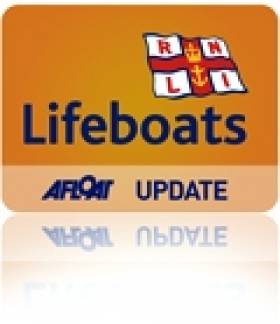Displaying items by tag: AllWeather Lifeboat (ALB)
New Tamar-Class Lifeboat: A First for RNLI in Ireland
Next month sees the introduction of the first RNLI Tamar-class lifeboat to enter service at an Irish lifeboat station, writes Jehan Ashmore.
The Tamar-class is the latest high-tech craft within the RNLI lifeboat fleet in use throughout the UK. Around 17 craft of the class, named after
the River Tamar, Cornwall have entered service. Some of the class are constructed exclusively for the purposes of providing relief duties across
the extensive network of 235 lifeboat stations throughout the UK and Ireland.
One of these relief lifeboats, RNLB Frank and Ann Wilkinson (16-06) arrived in Dun Laoghaire in July from Poole, Dorset, the headquarters of the RNLI. The lifeboat carried out crew training exercises, not just for the local lifeboat crew but other station crews as part of the Irish divisional staff training programme.
The fleet is divided into two categories: inshore and all-weather class lifeboats (ALB). Of the ALB's there are currently five classes: Tyne, Mersey, Trent, Severn and Tamar. These boats can be operated safely in all weathers and are designed to self-right in the event of a capsize.
The lifeboats are fitted with navigation, location and communication equipment with the RNLI policy of operating each craft for around 25 years. The introduction of the RNLB Killarney at Kilmore Quay will enhance the organisation's vital services off the south-east coast.
Related Safety posts
RNLI Lifeboats in Ireland
Safety News
Rescue News from RNLI Lifeboats in Ireland
Coast Guard News from Ireland
Water Safety News from Ireland
Marine Casualty Investigation Board News
Marine Warnings





























































